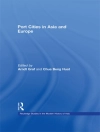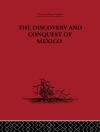This new book provides comprehensive coverage of sustainable sweet cherry production including global trends, improved varieties and rootstocks, orchard establishment and management, the physiology of growth and cropping, and protecting the crop from adverse climates, pests, and diseases. Sweet cherries are a specialty crop, subject to significant production risks for growers, yet with high potential market returns due to strong consumer demand for the fruit’s intensely enjoyable flavor and nutraceutical benefits.
Written by a renowned team of experts, this book emphasizes fresh market sweet cherry production practices based on scientific principles. It serves as a resource for a scientific foundational understanding of cherry tree growth and fruit development, providing the keys to both reasoned choice of orchard practices and the solution of future problems across a wide range of growing conditions and environments. The book:
– Covers improved sweet cherry varieties and rootstocks.
– Describes state-of-the-art tree training and production systems.
– Considers production risk management technologies and decisions.
Heavily illustrated and presented in full color throughout, Sweet Cherries is written with practical details and underlying physiological concepts for use by beginning and established fruit growers, consultants, and advisors, in addition to students and professionals in horticulture.
About the author
Dr. Clive Kaiser is a pomologist, having worked on multiple different cropping systems on 4 continents. He has worked in academia, government and private industry in both exports and imports and has seen the world fruit industries from bud to shelf. He has been working on sweet cherries since 2000 and his work has resulted in several US and International Patents for plant coatings that prevent fruit cracking, reduce water usage in production systems and prevent insects from laying eggs in sweet cherry fruit. He is a Professor in the Department of Horticultural Science at Oregon State University and serves as the Interim Director of the Hermiston Agricultural Research and Extension Center.












